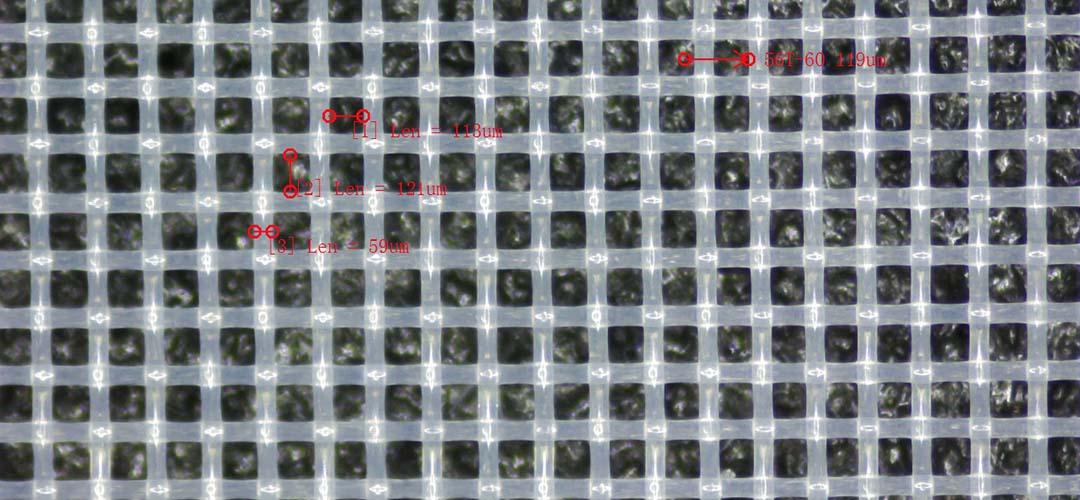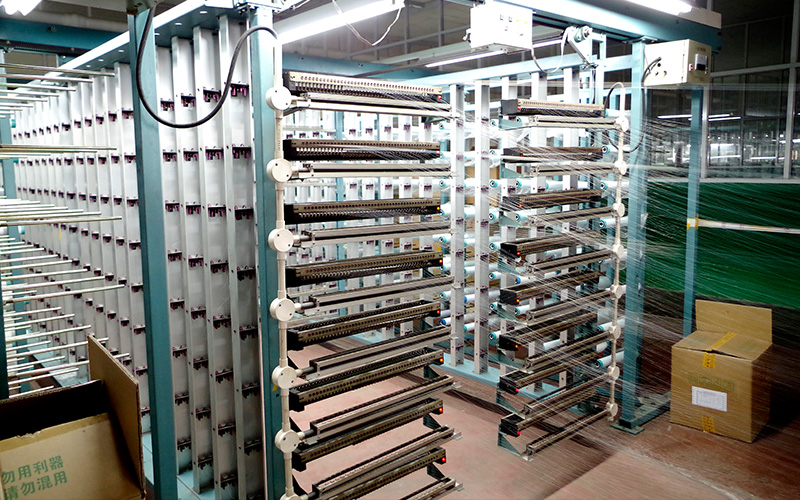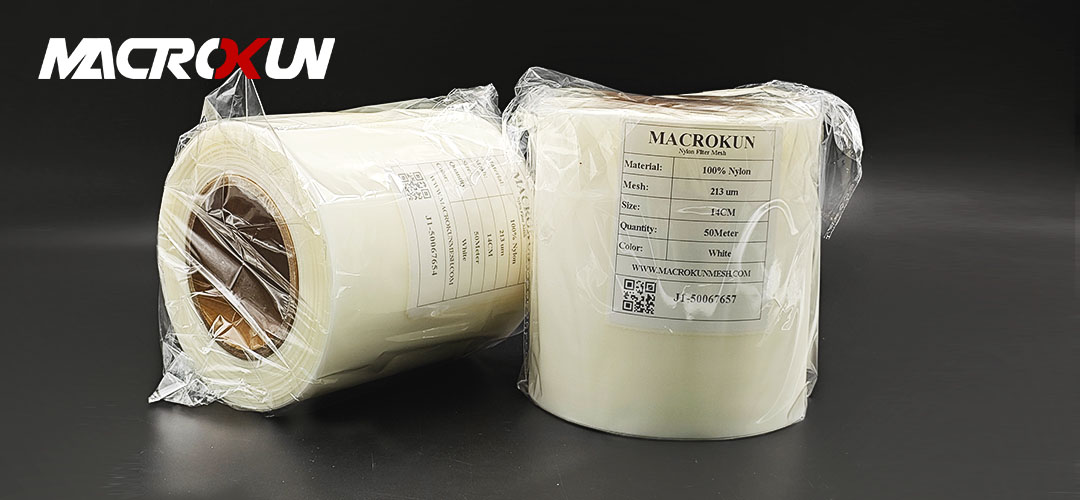Laboratory filtration is a crucial process in various scientific and industrial applications. It involves separating solid particles from liquid or gas samples to obtain purified substances for further analysis or experimentation. One of the most commonly used filtration materials in laboratories is nylon mesh, known for its durability, flexibility, and high filtration efficiency. In particular, 20-micron nylon mesh has proven to be highly effective in a wide range of laboratory filtration applications.
One of the key benefits of using 20-micron nylon mesh in laboratory filtration is its ability to effectively capture particles as small as 20 microns in size. This level of filtration is essential in many scientific processes where even the smallest impurities can affect the accuracy and reliability of experimental results. By using 20-micron nylon mesh, researchers can ensure that their samples are free from contaminants and obtain more precise data for their studies.
Furthermore, 20-micron nylon mesh is highly versatile and can be used in a variety of filtration setups, including vacuum filtration, gravity filtration, and pressure filtration. Its flexibility allows researchers to adapt their filtration processes to different sample types and volumes, making it a valuable tool in any laboratory setting. Whether filtering liquids, gases, or solid samples, 20-micron nylon mesh provides consistent and reliable filtration performance.
Another advantage of using 20-micron nylon mesh in laboratory filtration is its durability and longevity. Nylon mesh is known for its resistance to chemicals, abrasion, and high temperatures, making it suitable for a wide range of harsh laboratory conditions. With proper care and maintenance, 20-micron nylon mesh can be reused multiple times without compromising its filtration efficiency, saving researchers time and money on replacement filters.
In addition to its filtration capabilities, 20-micron nylon mesh is also easy to clean and sterilize, ensuring that researchers can maintain a high level of hygiene in their laboratory environment. By regularly cleaning and sterilizing nylon mesh filters, researchers can prevent cross-contamination between samples and minimize the risk of experimental errors. This level of cleanliness is essential in laboratory settings where accuracy and precision are paramount.
Overall, the top applications of 20-micron nylon mesh in laboratory filtration include particle size analysis, sample preparation, solvent filtration, and microbiological testing. Its high filtration efficiency, versatility, durability, and ease of maintenance make it an indispensable tool for researchers in various scientific disciplines. Whether working in chemistry, biology, environmental science, or material science, researchers can rely on 20-micron nylon mesh to provide consistent and reliable filtration results.
In conclusion, 20-micron nylon mesh is a valuable asset in laboratory filtration due to its high filtration efficiency, versatility, durability, and ease of maintenance. By using 20-micron nylon mesh filters, researchers can ensure the purity and accuracy of their samples, leading to more reliable experimental results. With its wide range of applications and benefits, 20-micron nylon mesh is a must-have tool for any laboratory looking to achieve excellence in filtration processes.
When it comes to laboratory filtration, choosing the right filter material is crucial to ensure accurate and reliable results. One popular choice among researchers and scientists is 20 micron nylon mesh. This versatile material offers a wide range of applications in various laboratory settings, making it a go-to option for many filtration needs.
One of the key advantages of 20 micron nylon mesh is its ability to effectively filter out particles as small as 20 microns in size. This makes it ideal for applications where fine filtration is required, such as separating solid particles from liquids or gases. Compared to other filter materials, such as paper or cellulose membranes, nylon mesh offers superior durability and resistance to chemicals, making it suitable for a wider range of filtration tasks.
In addition to its fine filtration capabilities, 20 micron nylon mesh is also known for its high flow rate. This means that liquids or gases can pass through the mesh quickly and efficiently, allowing for faster filtration processes. This can be particularly useful in high-throughput laboratory settings where time is of the essence.
Another advantage of 20 micron nylon mesh is its versatility. This material can be easily cut and shaped to fit different filtration setups, making it adaptable to a variety of laboratory equipment. Whether you need to filter samples in a test tube, a beaker, or a filtration funnel, nylon mesh can be customized to meet your specific needs.
Compared to other filter materials, such as glass fiber or ceramic membranes, nylon mesh is also more cost-effective. This makes it a budget-friendly option for laboratories looking to save on filtration expenses without compromising on quality. With proper care and maintenance, nylon mesh filters can be reused multiple times, further reducing costs in the long run.
In terms of compatibility with different solvents and chemicals, 20 micron nylon mesh is highly resistant to a wide range of substances. This makes it suitable for filtering a variety of samples, including aqueous solutions, organic solvents, and corrosive chemicals. Researchers can rely on nylon mesh filters to provide consistent and reliable results across different types of experiments.
Overall, the applications of 20 micron nylon mesh in laboratory filtration are vast and varied. From fine particle separation to high flow rate filtration, this material offers a range of benefits that make it a top choice for many researchers and scientists. Its durability, versatility, cost-effectiveness, and chemical resistance set it apart from other filter materials, making it an indispensable tool in the modern laboratory.
In conclusion, 20 micron nylon mesh is a valuable asset in laboratory filtration, offering a combination of fine filtration capabilities, high flow rates, versatility, cost-effectiveness, and chemical resistance. Whether you are filtering samples in a research lab, a pharmaceutical facility, or a quality control department, nylon mesh filters can help you achieve accurate and reliable results. Consider incorporating 20 micron nylon mesh into your filtration processes to experience the benefits firsthand.
20 micron nylon mesh is a versatile material that finds numerous applications in laboratory filtration. Its fine mesh size makes it ideal for filtering out particles of a specific size, making it a popular choice for various industries. In this article, we will explore some successful case studies that highlight the top applications of 20 micron nylon mesh in laboratory filtration.
One common application of 20 micron nylon mesh is in the pharmaceutical industry. Pharmaceutical companies often use this type of mesh to filter out impurities from their products. For example, during the manufacturing process of drugs, 20 micron nylon mesh can be used to remove any particles that may affect the quality and purity of the final product. This ensures that the drugs meet the required standards and are safe for consumption.
Another industry that benefits from the use of 20 micron nylon mesh is the food and beverage industry. In food processing plants, this type of mesh is used to filter out contaminants such as dirt, debris, and bacteria from liquids and solids. By using 20 micron nylon mesh, food manufacturers can ensure that their products are free from any harmful substances, thus maintaining high levels of food safety and quality.

Laboratories that conduct research and testing also make use of 20 micron nylon mesh in their filtration processes. For instance, in environmental testing labs, this type of mesh is used to filter out pollutants and other harmful substances from water samples. By using 20 micron nylon mesh, researchers can obtain accurate and reliable results, which are crucial for making informed decisions and recommendations.
In the automotive industry, 20 micron nylon mesh is used for filtering out contaminants from engine oil and other fluids. By using this type of mesh, automotive manufacturers can prevent damage to engine components and ensure optimal performance of vehicles. This helps in extending the lifespan of the vehicles and reducing maintenance costs in the long run.
Moreover, 20 micron nylon mesh is also used in the electronics industry for filtering out dust and other particles from electronic components. This helps in preventing damage to sensitive electronic devices and ensures their proper functioning. By using this type of mesh, electronics manufacturers can maintain high levels of product quality and reliability.

Overall, the applications of 20 micron nylon mesh in laboratory filtration are diverse and widespread. From pharmaceuticals to food and beverage, from research labs to automotive and electronics industries, this type of mesh plays a crucial role in ensuring the quality and safety of products and processes. Its fine mesh size and high filtration efficiency make it a popular choice for various applications where precise filtration is required.
In conclusion, the successful case studies highlighted in this article demonstrate the importance and effectiveness of 20 micron nylon mesh in laboratory filtration. Its versatility and reliability make it a valuable tool for industries that require precise and efficient filtration processes. As technology continues to advance, we can expect to see even more innovative applications of 20 micron nylon mesh in the future.
20 micron nylon mesh filters are widely used in laboratory filtration due to their ability to effectively remove particles and impurities from liquids. These filters are commonly used in a variety of applications, including cell culture, particle analysis, and environmental testing. Proper maintenance and cleaning of these filters are essential to ensure their longevity and effectiveness. In this article, we will discuss some tips for maintaining and cleaning 20 micron nylon mesh filters.
One of the most important aspects of maintaining 20 micron nylon mesh filters is regular inspection. Inspecting the filters for any signs of damage or wear is crucial to prevent any particles from passing through the filter. If any tears or holes are found in the mesh, the filter should be replaced immediately to avoid contamination of the sample.
In addition to regular inspection, proper storage of 20 micron nylon mesh filters is also essential. Filters should be stored in a clean, dry environment to prevent any buildup of dirt or debris on the mesh. Storing filters in a sealed container or bag can help protect them from damage and ensure their effectiveness when used.

When it comes to cleaning 20 micron nylon mesh filters, it is important to use the right cleaning solution. Mild detergents or cleaning agents can be used to remove any particles or impurities that may have accumulated on the mesh. It is important to rinse the filters thoroughly after cleaning to ensure that no residue is left behind.
Another important tip for cleaning 20 micron nylon mesh filters is to avoid using harsh chemicals or solvents. These can damage the mesh and reduce its effectiveness in filtering out particles. It is best to stick to mild cleaning agents and avoid anything that could potentially harm the filter.
In addition to regular cleaning, 20 micron nylon mesh filters should also be sanitized periodically to remove any bacteria or contaminants that may have accumulated on the mesh. This can be done by soaking the filters in a sanitizing solution or by autoclaving them at high temperatures. Proper sanitization is essential to ensure that the filters are free from any harmful microorganisms.
Proper handling of 20 micron nylon mesh filters is also important in maintaining their effectiveness. Filters should be handled with clean hands and stored in a way that prevents any damage to the mesh. Avoiding rough handling or bending of the filters can help prolong their lifespan and ensure that they continue to filter effectively.
In conclusion, proper maintenance and cleaning of 20 micron nylon mesh filters are essential to ensure their longevity and effectiveness in laboratory filtration. Regular inspection, proper storage, and cleaning with mild detergents are key aspects of maintaining these filters. Sanitizing filters periodically and handling them with care can also help prolong their lifespan and ensure that they continue to filter out particles and impurities effectively. By following these tips, laboratory professionals can ensure that their 20 micron nylon mesh filters remain in top condition and provide reliable filtration for their experiments and tests.
Pre: Custom Nylon Mesh Screens: Best Options for Your Projects

MACROKUN has established long-term and stable cooperative relations with many transportation companies such as China Post, DHL, FEDEX, USPS, UPS, etc. Of course, MACROKUN can also provide air and sea transportation. The powerful logistics system enables all MACROKUN'S Printing Mesh, Filter Mesh and Filter Bags and so on to be easily and efficiently transported to any place. For quotes and inquiries, please email our sales team.





